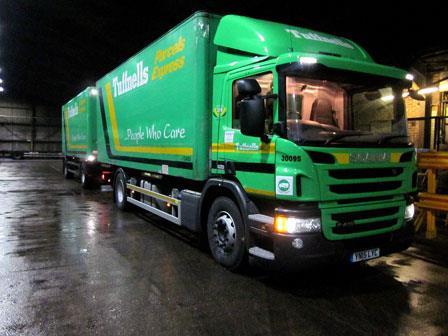
As the dust begins to settle, following the collapse of Tuffnells Parcels Express this week, experts are warning of the likelihood of more insolvencies in the sector.
Sheffield-based Tuffnells called in joint administrators Rick Harrison and Howard Smith of Interpath Advisory on Monday (12 June) after battling against tough trading conditions, the impact of the Covid-19 pandemic and rocketing inflation. The IDW carrier's 2,200 employees have been told that the “majority” will lose their jobs.
Alex Jay, head of insolvency and asset recovery at law firm Stewarts, warned this week that more delivery companies could follow in Tuffnell’s footsteps.
He said: “Tuffnells’ demise is indicative of changing consumer habits driving competition in particular sectors – and proving too much in this case for Tuffnells."
"We can expect more of that, in the consumer retail sector,” he said, adding that rising interest rates could add momentum.
"It is interesting, as one might expect, to see the effect of interest rate rises driving restructurings and collapses, so we may well have yet to see the impact of that," he noted.
Jonathan Backhouse, director of transport law firm Backhouse Jones, said the haulage sector is one of the first to be hit in an economic downturn, adding that the only bright spot is that the industry’s skills shortage will make it easier for some Tuffnells employees to secure new jobs.
He told MT: “It is tragic for the staff, the suppliers and the owners but the real concern now is whether this is a one-off due to a specific set of circumstances or an early sign that the industry is beginning to struggle as a result of financial and economic issues that have arisen since the beginning of the Ukraine War. Only time will tell.”
Some companies went on line this week to offer Tuffnell employees their commiserations and to discuss the impact on the sector.
Writing on Linkedin Craig Kavanagh, ArrowXL sales director, estimates Tuffnells was shipping around one million consignments a month, to a mix of b2b and b2c customers.
The privately-owned IDW carrier, which operated under the 'The Big Green Parcel Machine' brand, had over 4,000 customers across the UK.
Kavanagh commented: “The bigger challenge starts now. Not just for the employees but for their customer base. Where is the capacity in this arena to handle an extra million consignments per month without impact on service levels?
Read more
- Please hire our people: Tuffnells plea as 2,200 workers face redundancy
- Tuffnells calls in administrators as 2,200 staff brace for redundancy
- New law gives “breathing space” to operators pushed to brink of insolvency
He added: “Perhaps that’s some of the problem for this type of traffic. It doesn’t work in the parcels carrier world at the rates retailers and consumers want to pay.
“The remaining small number of one person carriers who specialise in this sector will benefit significantly from this, revenue per consignment will now be enhanced.
“I believe we will now see an impact similar to the Covid-19 period where the larger products get squeezed out of networks to create capacity for more attractive freight.
He also warned Tuffnells customers to do their due diligence before finding a replacement carrier. “Some difficult decisions ahead for the customers impacted by this. It’s the time to choose your next delivery partner wisely.
"There is more to the cost of delivery than the headline rate. Loss, damage, impact on your call centres, negative feedback and reputational damage all need consideration.”
Hauliers also went on line this week to discuss the impact on the sector. Tony Spooner, owner of Wellingborough-based parcels and logistics firm AJS Express, said the sector is suffering from a race to the bottom on price.
He claimed that “every courier [is] under cutting other couriers with no standardisation or minimum pricing - I would bet my life there are some couriers that do some things for free to get other work”.
Michelle Blackwell, general manager at Sussex-based haulier Roberts Transport said pallet and parcel carriers should learn to decline some customers’ demands.
“What once was classed as ugly freight or oversize needs to go back to two man service and the customer needs to pay the right rates.
“Three pallet lengths of metal items weighing 1,000kg on a 18t going to private address should be going on a flat bed with grab or Moffitt. I'm pretty sure things have got to change in both sides of the delivery service soon. I hoped lessons had been learnt with the Citylink demise. So sad for the employees.”
Nigel Kime, managing director of Lincolnshire-based haulier George H Kime & Co, pointed to the impact of inflation on both the parcels and haulage sectors as key factors.
He said: “It is a very, very sad day. It’s a challenging market whether it be pallets or parcels or general haulage - so many companies thinking they can do the work for less than what we were all getting four to five years ago.
He said the current economic situation is reminiscent of the UK market following the 2008 banking crash. “It is 2008/9/10 all over again I’m afraid. I appreciate the fuel price has come down but everything else has gone up and we all know this," he said.
He pointed to the rising price of curtainsiders, tractors, forklift trucks, tyres, insurance, and repairs, as well as the demands of legislation and compliance and wage increases.
He added: “We strive to be as efficient as anyone else but there really is only so much we can do. It’s a good job we are all passionate about the road haulage industry.”











